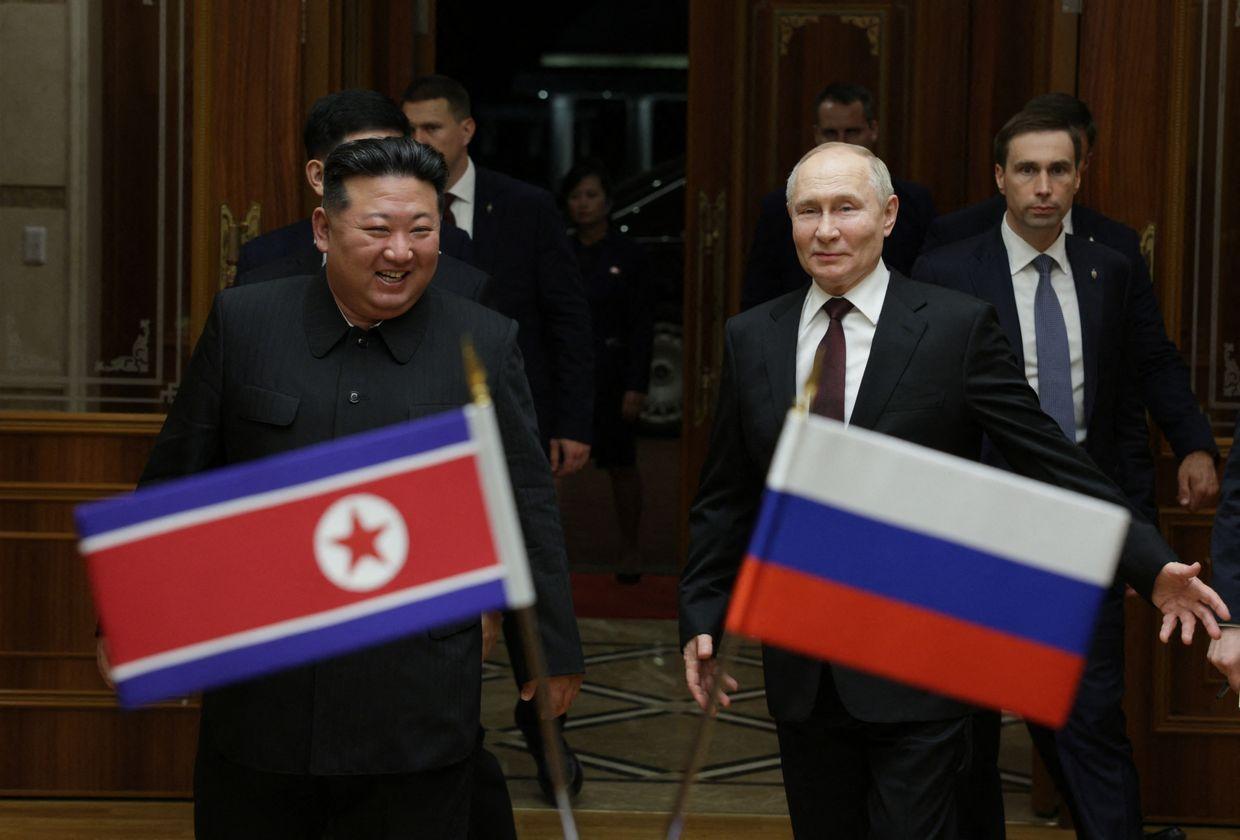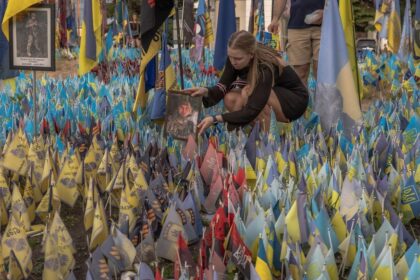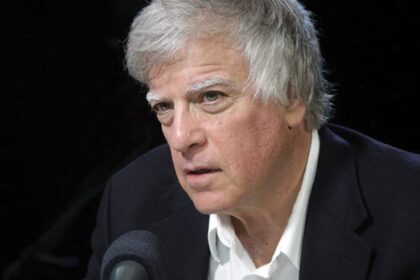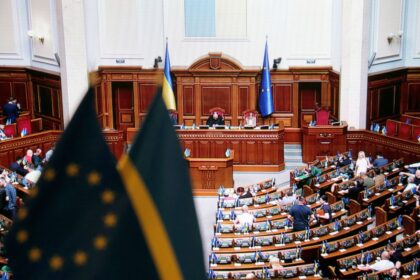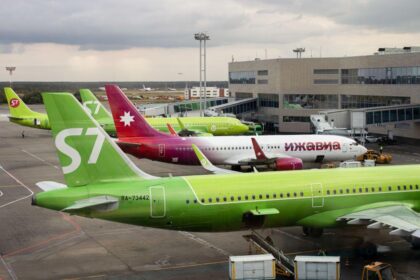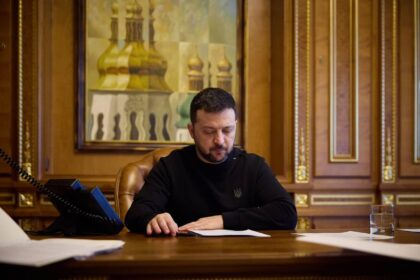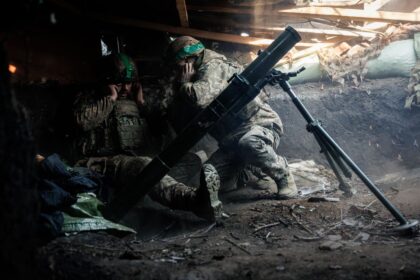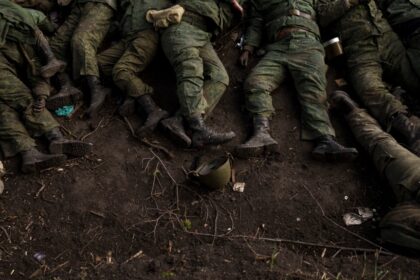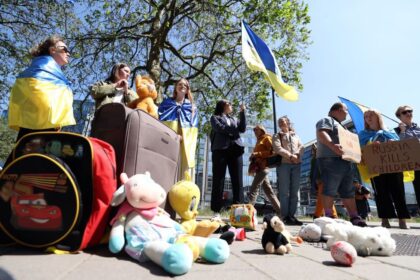**North Korean Leader Honors Troops Killed in Ukraine Conflict**
In a rare move, North Korea’s leader Kim Jong Un has publicly acknowledged the sacrifices of his country’s soldiers who were killed while fighting alongside Russia against Ukraine. This marks a significant shift for Pyongyang, which had previously denied sending combat troops to Ukraine.
According to estimates from South Korea, around 15,000 North Korean troops were deployed to support Russia’s war effort, resulting in approximately 4,700 casualties, including 600 deaths. The exact number of losses is likely to be higher, as the North Korean government has been accused of downplaying its military involvement in Ukraine.
The tribute to fallen soldiers came during a gala concert held in Pyongyang on June 30, which commemorated the first anniversary of a military treaty signed between North Korea and Russia. The ceremony featured photographs of Kim resting his hands on flag-draped coffins, as well as emotional scenes of him alongside top officials, all dressed in winter clothing.
The event marked the first time that North Korean state media had shown footage and photos of fallen troops to the public. The images were displayed during performances by North Korean and Russian artists, celebrating the alliance between the two countries.
**A Turning Point for Pyongyang?**
This development is significant because it marks a rare acknowledgment by Pyongyang of its battlefield losses in Ukraine. Previously, the North Korean government had been reluctant to discuss its military involvement in the conflict.
Kim’s tribute has also sparked speculation about future deployments. South Korea’s National Intelligence Service (NIS) has warned that more North Korean troops are likely to be sent to support Russia’s war effort as early as July or August.
Additionally, there have been reports of Pyongyang recruiting additional soldiers for future deployments. This would add to the significant military support already provided by North Korea, including artillery shells and ballistic missile transfers in exchange for economic and technical assistance from Moscow.
**Consequences of Military Involvement**
The consequences of North Korea’s military involvement in Ukraine are likely to be far-reaching. The country may face diplomatic backlash and potential economic sanctions from the international community.
Moreover, Pyongyang’s decision to send troops to support Russia has raised questions about its relationships with other countries, particularly China. Beijing has been cautious in its response to North Korea’s military involvement, highlighting concerns about stability on the Korean peninsula.
**Analysis: What This Means for the Region**
This development has significant implications for regional security and diplomacy. The increasing involvement of North Korea in Ukraine’s conflict highlights the growing complexity of global politics.
As a key player in the Asia-Pacific region, Pyongyang’s actions are likely to have ripple effects across the continent. Neighboring countries, particularly South Korea and Japan, will be closely watching developments in Ukraine and their implications for regional stability.
In conclusion, Kim Jong Un’s tribute to fallen soldiers is a rare acknowledgment of North Korea’s military involvement in Ukraine. This development has significant implications for regional security, diplomacy, and economic relationships.




